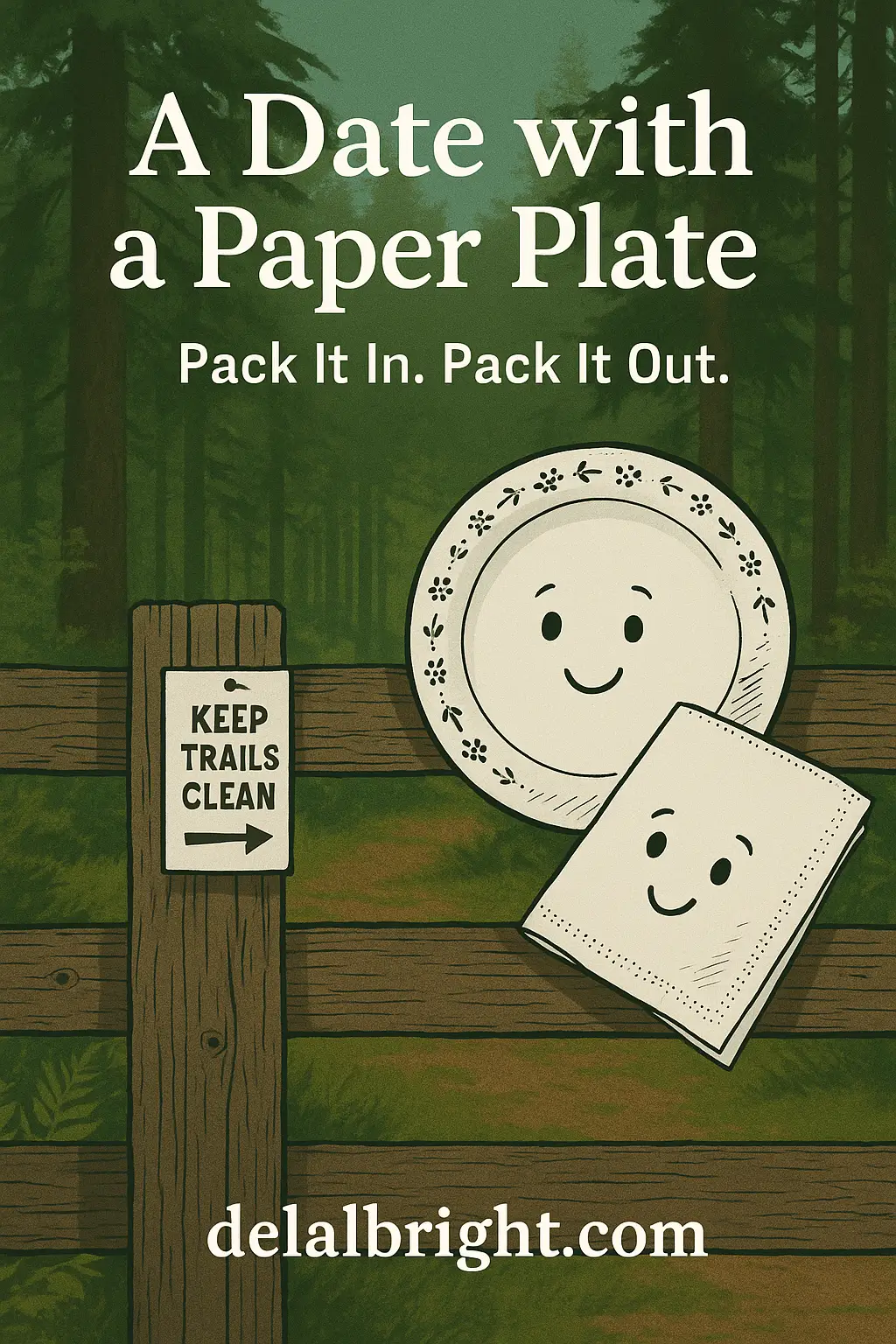A Date with a Paper Plate – Packing Out Trail Trash
By Del Albright, Sustainable Motorized Recreation Advocate
Trail Tip: We must pack it in and pack it out when recreating in the backcountry and on our trails. Setting the example—especially for our kids—is how we keep access open and preserve the places we love.
The Love Story That Went Sideways (for fun)
There I was, lying in the cupboard, minding my own business like any good napkin, when this paper plate started coming onto me.
Oh, she was cute all right—decked out in flowers and looking sharp. But like any single male napkin, I played hard to get. She kept flirting, though, and soon I started to like the way things were shaping up. Maybe she was “the one.”
She suggested we go on a date, and before long, I gave in. We were headed for adventure.
The Picnic Gone Wrong
Next thing I know, old what’s-his-face loads us up for a picnic in the woods. Suddenly I’m on a picnic table surrounded by greasy chicken, soda cans, and other paper products.
But my “date?” Nowhere to be seen. I’d been stood up. In all the clutter on the picnic table, there was no sign of her.
Before I could complain, what’s-his-face used me to wipe his greasy mug, then tossed me in a clear plastic bag with the rest of the trash. Fine. Romance was over anyway.
As we rattled out of the woods in his old jalopy, there she was! My paper plate sweetheart—stapled to a fencepost with “PICNIC →” scrawled on her backside. Heartbroken, I waved goodbye as we rolled away.
The Real Message Behind the Story
By now, you’ve caught my drift. This isn’t really about a napkin and a paper plate. It’s about something I see way too often: trash on the trail.
People think stapling plates to posts is harmless. But it’s just one more form of litter—one that damages our image as outdoor enthusiasts and gives anti-access groups ammunition to shut us down. Now, I’m not suggesting that we can’t ever staple a sign to guide others to our camp or event, but let’s take the darn things down when we’re done. Just like putting out your campfire completely before leaving it. (More on campfires and wildfire prevention here.)
Our trails are too precious to risk over careless trash. It’s on all of us to pack it in, pack it out, and leave the outdoors better than we found it.
Why It Matters
-
Public lands staff pay the price. Every Monday, USFS and BLM employees pull down paper plates, pick up cans, and shovel out fire pits full of garbage. That costs all of us taxpayers money.
-
Our image takes a hit. Trash on trails makes motorized recreationists look careless. That fuels the arguments of those who want to limit or ban our access.
-
Human waste is part of the equation too. For example, one season on the Rubicon Trail saw 35,000 visitors produce 70,000 pounds of human waste. Without proper solutions, sanitation problems can literally close trails. We must all be cognizant of “white flowers” left behind and unburied human waste. Just imagine the backcountry is your back yard! Treat it that way.
Be Part of the Solution
Trail stewardship is simple: pack it out. Every time.
Whether it’s paper plates, soda cans, or human waste, there are affordable, easy ways to do it right. Show leadership. Teach your kids. Set the example.
Want to Learn More?
Check out these resources on trail sanitation and pack-out solutions to see gear, tips, and proven methods for keeping our trails clean and open.
Trail Ethics and Overlanding Etiquette.
Bottom line: “Our future depends on not leaving our past behind.” Let’s keep our lands open by keeping them clean.
SHORTCUTS to volunteerism and landuse here in my book on Amazon.

